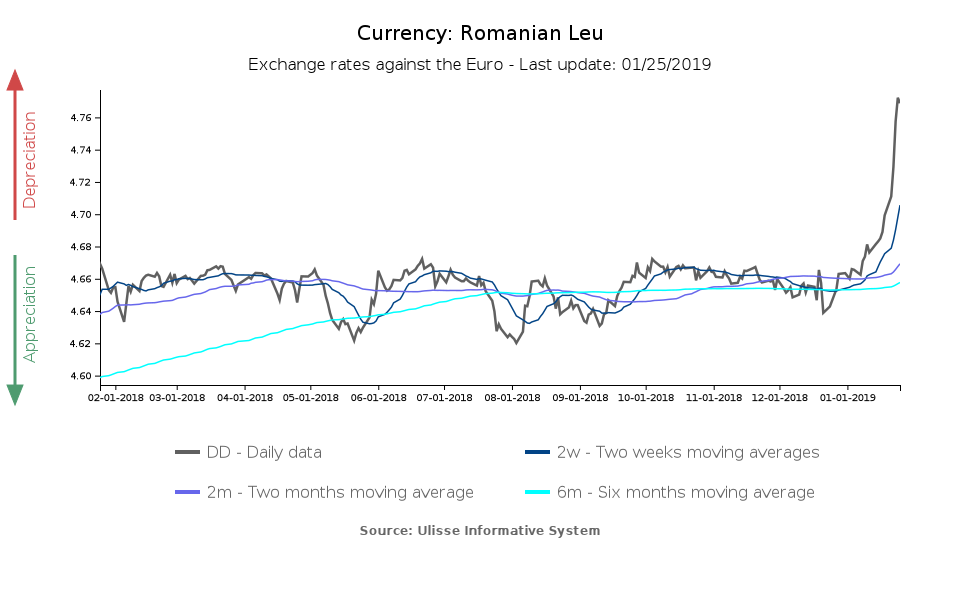Experiment of liberalism in Romania
Monetary authorities let the leu float, but under strict control.
Published by Luigi Bidoia. .
Exchange rate Europe Euro Exchange ratesIn the last two weeks, the Romanian Leu has experienced a sudden depreciation: its exchange rate against the euro rose from 4.66 to 4.77 in 15 days. The depreciation hasn't been particularly strong (just over 2%), but it represents a significant break compared to the behaviour of the currency in 2018, as you can see from the graph below.

Romania is one of the fastest growing economies in the EU. In the last five years, Romania's economic activity has increased at annual rates above 4%,
supporting the growth of disposable income.
Imports have increased more than exports, leading to a current account deficit; in the first 11 months of 2018, it has almost reached €9 billion1.
Imports purchased on credit at the end of 2018 have been particularly high, now creating the conditions for a significant demand for euros against leu, necessary to pay
relevant invoices.
In addition to a current account deficit, in recent years a public budget deficit has been growing as well; its recent deterioration, together with
the prospect that in 2019 it might exceed 3% of GDP (breaking the EU Stability and Growth Pact's rules),
led the country's finance minister to announce, on December 18, a short-term increase in corporate income taxes.
On December 21, the government moved from words to deed. The most affected sectors are energy and telecommunications companies, banks and private compulsory pension funds.
At the same time, to mitigate potential protests, the government has declared that the additional revenues will be allocated to infrastructure and social projects.
The reaction of the markets to the government's measure has been negative. On December 19, the day after the announcement of the new taxes, national stock exchange collapsed (see for example Bucharest Stock Exchange Trading Index). Tensions shifted from the stock exchange to the currency markets, leading the Leu to progressively depreciate from January 7 onwards.
For the time being, Romanian central bank has not intervened to curb the depreciation, because it is considered modest (less than 3%).
Moreover, the Bank believes that it is not the result of speculation but of a physiological imbalance between supply and demand on the currency market.
It could intervene if the depreciation exceeded the threshold of 4-5%.
Foreign currency reserves, amounting to about 35 billion dollars, are not very high, but seem sufficient to discourage any speculative attacks.
It is therefore likely that the exchange rate between the leu and the euro will remain between 4.75 and 4.80, as in the last two days.
1. See the official communication from Banca Naţională a României.


